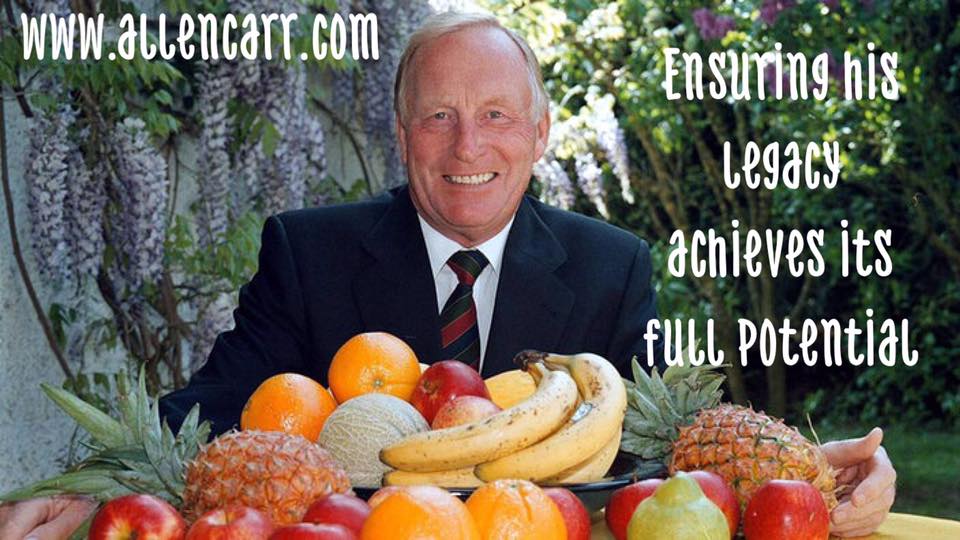How to quit craving carbs – Quit your carb addiction guide
Learn how to break free from your carb addiction and curb those intense cravings with our guide on how to quit craving carbs.

You know the feeling. The thought. The overwhelming urge, the insatiable desire, the all-consuming fancy for carbohydrates. So, wouldn’t it be great to know “how to curb carb cravings”? and “how to curb food cravings”?
First though – we should ask ourselves why we even want to know “how to get rid of carb cravings”. The answer is simple; as much as the thought of them excites us, as much of the taste of them seems to entice us, rather than leaving us with a healthy sense of satisfaction – they leave us feeling fat, stuffed, bloated, guilty, and disappointed in ourselves.
What are carbs?
Carbs are foods that contain refined carbohydrates with a low fibre amount, mainly flour and sugar. These are found in foods like bread, cakes, cookies and other bakery items made with flour; white (processed) rice and cereals. Junk food is full of “bad carbs” and that is what gives it that addictive quality.
There are “good carbs” (those found in fresh fruit and vegetables) and there are “bad carbs” (those found in processed foods or starchy vegetables and refined sugar).
Simple carbs, such as those in sugary snacks and white bread, are digested quickly and can cause rapid spikes in blood sugar, while complex carbs like whole grains and vegetables are digested more slowly and have a gentler effect on blood sugar.
It’s the bad carbs that create cravings and end up making us feel lousy once we’ve responded to the craving by eating them. You know the feeling – bloated, full up, and regretting that you didn’t know when to quit.
Sugar activates the taste buds, which enhances the pleasurable experience and can make these foods even more enticing.
Carbohydrates are one of the three macronutrients, along with fats and proteins, and all are essential for a balanced diet.
What are carb cravings?
Carbs are not all bad – as mentioned there are good carbs and bad carbs. The bad carbs create havoc with our blood sugar levels which in turn creates a craving, like a yearning, a seemingly overwhelming desire to eat bad carb foods.
Pretty much all junk food, fast food, processed food, ready meals, convenience foods, ready made sauces, and fried food contain bad carbs.
Knowing how these foods impact our blood sugar levels and understanding the effect that has on our thought processes is key to controlling – or should I say – getting rid of carb cravings.
Our eat behavior is shaped by repeated exposure to these foods, making it harder to resist them over time.
So, what is that thought process and what does it cause? When someone experiences a craving for “bad carbs” – they assume that the only thing that might “satisfy the craving” is food containing bad carbs.
It’s ironic – but the one thing that will never satisfy a craving for bad carbs – are bad carbs. Of course, it seems to end the craving momentarily, but we don’t realise that our brain and body has been manipulated by a cunning, sneaky, man-made addiction to bad carbs & refined sugar. Increased carb intake can perpetuate this cycle, making it even more difficult to break free.
When we consume bad carbs – it has a dramatic impact on our blood sugar levels creating what we perceive as excessive highs followed by miserable lows. These alone have an impact on our mental state with the lows appearing to get worse and worse.
When those lows are relieved by the consumption of more bad carbs it fools us into believing that it created pleasure, often leading us to eat more food in an attempt to regain that feeling. We forget entirely that it was the extreme, violent manipulation of our blood sugar levels that created the discomfort of the low in the first place.
Understanding Carb Addiction
Carb addiction goes beyond simply enjoying bread, pasta, or candy foods. It’s a real struggle that can lead to excessive consumption and a cycle of cravings that feel impossible to break.
When you find yourself binge eating or constantly thinking about your next carb-heavy snack, it’s not just a lack of willpower at play. Food addiction, especially to carbohydrates, is driven by powerful behavioral responses in the brain. Eating carbs triggers the release of dopamine, the “feel-good” chemical, making you want to repeat the experience.
Researchers have developed tools like the Yale Food Addiction Scale (YFAS) to help identify food addiction, including carb addiction. People who score high on this scale often report symptoms similar to those seen in other addictions, such as loss of control, intense cravings, and continued excessive consumption despite negative consequences.
These patterns can lead to unhealthy eating behaviours and make it difficult to quit eating certain foods, especially those high in refined carbohydrates. Understanding that carb addiction is rooted in both biology and behavior is the first step toward breaking free from its grip.
The Science Behind Carb Cravings
Ever wonder why you crave carbs so intensely, especially after eating something candy or starchy? The answer lies in the way certain foods affect your blood sugar.
Carb-heavy foods, especially processed carbs and those with a high glycemic index (GI), cause your blood sugar to spike rapidly. This is often followed by a sharp drop, leaving you feeling tired, irritable, and craving more carbs to bring your energy back up.
This vicious cycle can make it hard to control carb cravings and can lead to excessive consumption of sugars and refined carbs.
But there’s more to it than just blood sugar. When you eat foods high in sugar and fat, your brain’s reward centers light up, releasing dopamine and reinforcing the desire to eat more.
Over time, excessive sugar intake can actually reduce the number of dopamine receptors in your brain, making you need even more sugar to feel satisfied. This process is similar to what happens with addictive substances, which is why some experts draw a drug sugar analogy.
A meta-analysis published in the American Journal of Clinical Nutrition found that diets high in high-GI foods are linked to an increased risk of cardiovascular disease and type 2 diabetes.
Understanding the science behind carb cravings can empower you to make better food choices and break the cycle for good.
How to Control Carb Cravings
We see the situation very clearly with drug addiction. What would you recommend to a heroin addict who is craving his next fix of heroin? Do you think some heroin will satisfy the craving? Well you might well do so if you don’t have an understanding of addiction – and you’d be wrong. Do non-heroin addicts crave heroin? Of course, not – why would they?
You’ll agree that the addict’s first shot of the drug created a craving for the second shot. The second shot created a craving for the third shot. And so on. Therefore, it’s easy to grasp how the next shot of heroin doesn’t relieve the craving – it simply makes the next craving inevitable. There is only one way for a heroin addict to quit craving the drug: STOP TAKING IT.
In the same way, to break the cycle of carb addiction, it is important to remove the addictive substance, carbs, from your environment, making it easier to avoid triggers and reduce cravings.
So how does that relate to carbs and “how to fight carb cravings”. Can we relate it to finding out “how to reduce carb cravings” or specifically – “how to quit craving bread” and other carb-heavy foods?
If you crave bad carbs nothing will appear to satisfy that craving other than bad carbs. The way to curb carb cravings doesn’t start with changing what you eat – it begins with changing what you think.
If you mope and moan and feel miserable because you can’t have bad carbs then you’ll be unhappy and the cravings simply get worse. However – if you get rid of the cravings altogether, by changing what you think about them and the foods that cause them – you feel wonderful.
It’s worth remembering that craving bad carbs can be a symptom of type 2 diabetes and the sooner you address that the better chance you have of suffering the organ failure, amputations, and other misery it causes if it remains untreated.
10 Ways to Control Carb Cravings
- Get help
It might sound like a tall order to eliminate processed carbs, starchy carbs, and refined sugar from your diet – but there is a way of doing it with ease. Not only that – it can be fun, enjoyable, and liberating to be helped to freedom by a problem that tackles the psychological aspects of the addiction. Allen Carr’s Easyway is perfect for that.
- Avoid certain foods
Once you’ve eliminated the foods that cause spikes and slumps in your blood sugar levels as well as those cravings – you’ll find the cravings simply quit. There is no unpleasant period of adjustment and no suffering required.
- Keep eating
If you are going too long between meals, your blood sugar will drop, leading to hunger. If you get too hungry there is always a chance that you’ll make a bad decision and turn to fast food, junk food, or convenience foods. Get in touch with your natural hunger and enjoy genuinely satisfying it.
- Plan ahead
If you plan out your meals each day, the right foods will always be at your fingertips, making you less likely to reach for quick, unhealthy solutions.
- Read food labels
You may be consuming foods containing hidden sugars or grains, and these foods could unknowingly trigger cravings. Ideally avoid food that require a list of ingredients – by nature they are normally processed.
- Keep hydrated
It’s easy to confuse thirst for hunger and eat instead of drinking. Have a drink. Of water, that is. Hunger and cravings may be confused with thirst, so make sure you’re drinking at least eight cups of water a day. Two cups can come from coffee or tea (caffeinated is fine), herb tea, sugar-free sodas or broth.
- Beware of stress
It can mess with your blood sugar levels and knock you sideways and have you automatically reach for food that you previously believed to be comforting. Identify stress for what it is – something that won’t be resolved by eating something. Mindfulness can help reduce stress dramatically.
- Rediscover regular exercise
We forget how great it feels to move our bodies. It also helps us handle stress and it’s great to dedicate time to physical activities that you enjoy.
- Enjoy weight loss
The weight will drop off of you – so enjoy how it makes you feel, how it makes you look, and how many compliments you receive. It happens fast and it’s wonderful.
- Enjoy the way you look
Once you’re free from bad carbs & refined sugar – your skin, your eyes, your hair become rejuvenated and invigorated. Enjoy the compliments (and make sure you give yourself some too).
Overcoming Emotional Eating
For many people, carb cravings aren’t just about hunger, they’re about emotions. When you feel stressed, anxious, or down, it’s easy to turn to carbohydrates for comfort. This pattern of emotional eating can quickly become a habit, making it even harder to control your carbohydrate intake.
Overcoming emotional eating starts with recognising your triggers and finding healthier ways to cope with your feelings.
Mindfulness techniques, such as pausing to check in with your emotions before reaching for food, can help you break the automatic link between stress and carb cravings. Practicing self-compassion and seeking support through cognitive-behavioral therapy can also make a big difference.
Building a balanced diet that includes plenty of whole grains, fruits, and vegetables can help stabilise your mood and reduce the urge to reach for candy foods. Be cautious with artificial sweeteners, as they can still activate your brain’s reward centers and may keep carb cravings alive. By addressing both the emotional and physical sides of food addiction, you can develop a healthier relationship with food and reduce your reliance on carbohydrates for comfort.
How long does it take to quit craving carbs
The amazing thing is, you can quit craving carbs immediately. Like most addictions a majority of the problem exists in your mind rather than in any physical withdrawal-like feelings created by the body.
Cravings are created in, and perpetuated by, your mind; the result of thought processes associated with trigger moments when it might normally cross your mind to have bad carbs. If you re-wire your brain’s thought processes by understanding how refined sugar & carbs have manipulated your moods, your emotions, and your feelings you can actually thoroughly enjoy thinking about NOT having those carbs rather than suffer any cravings or feelings of loss.
Who would have thought that getting rid of refined sugar, processed carbs, and starchy carbs could feel so great? Rather than feeling that you’re missing out of something precious – you actually feel free. Allen Carr’s Easyway is a great way to make that happen.
Maintaining Progress and Avoiding Relapse
Breaking free from carb addiction is a huge achievement, but maintaining your progress is just as important. Long-term success comes from making sustainable lifestyle changes that support your health and well-being.
Continue to eat a balanced diet rich in whole foods, stay hydrated, and make physical activity a regular part of your routine. These habits not only help control carb cravings but also reduce your risk of chronic diseases like diabetes and cardiovascular disease.
It’s also crucial to have strategies in place for managing stress and emotions, such as meditation, yoga, or talking to a facilitator. Avoiding processed carbs and sugary snacks can help prevent old habits from creeping back in.
If you do slip up, don’t be too hard on yourself. Relapse is a common part of recovery, and what matters most is getting back on track. Surround yourself with supportive people and remember that every healthy choice you make brings you closer to your goals.
Research shows that lifestyle changes, including diet and exercise, are powerful tools for reducing the risk of chronic disease and supporting long-term weight loss.
Building a Support Network
You don’t have to tackle carb cravings alone. Building a strong support network can make all the difference in overcoming carb addiction and maintaining your progress.
Reach out to friends and family who understand your goals and can offer encouragement when cravings hit. Consider joining a support group, either in person or online, where you can share experiences and learn from others facing similar challenges.
Working with a facilitator or registered dietitian can provide expert guidance tailored to your needs. Online communities, forums, and social media groups can also offer a sense of connection and accountability.
Remember, carb addiction is a treatable condition, and seeking help is a sign of strength, not weakness. By surrounding yourself with support and staying informed about the science behind carb cravings, you’ll be better equipped to make lasting changes and enjoy a healthier, more balanced lifestyle.
Who would have thought that getting rid of refined sugar, processed carbs, and starchy carbs could feel so great? Rather than feeling that you’re missing out of something precious – you actually feel free. Allen Carr’s Easyway is a great way to make that happen.
Find the right weight loss & sugar addiction program for you
Free online quiz
Not sure if you’re ready? Daunted by the prospect of what what changing your eating habits will mean for you? We can help.
Take a few minutes to fill out our online consultation and we will get back to you with our personalised recommendation.
Go on, start your journey to freedom today!





